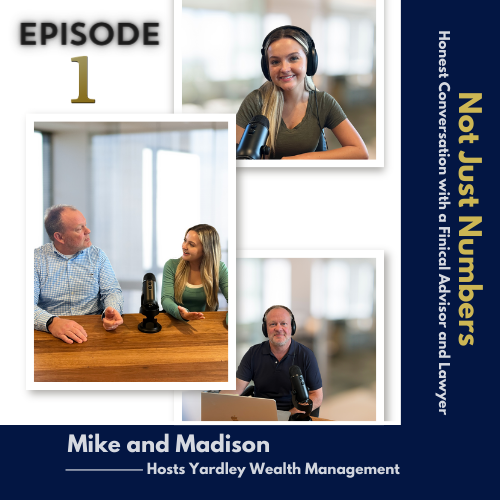Episode 1: What to Do If a Loved One Dies, And You’ve Never Handled the Money
Hosts: Madison Demora and Mike Garry
- Open Communication: Encouraging couples to regularly discuss and share financial responsibilities.
- Preparation: Highlighting the need for contingency plans and understanding where important financial documents and accounts are held.
- Professional Guidance: Suggesting when and how to seek help from financial advisors and estate planners.
This episode offers valuable insights and actionable advice for anyone looking to ensure they are better prepared for life’s unexpected events. Listen in to learn how to protect yourself and your loved ones by being proactive about your financial well-being.
Listen to Our Podcast On:
Key Points and Timestamps
- 0:00 – 03:18 – Introduction and purpose of the podcast
- 03:19 – 10:19 – Introduction to Yardley Wealth Management
- 10:20 – 12:17 – Yardley Estate Planning
- 12:24 – 21:25 – Hypothetical Situation “What to do if a loved one dies, and you’ve never handled the money”
Follow Us on Social Media
Stay updated with the latest episodes and news by following us on social media:



